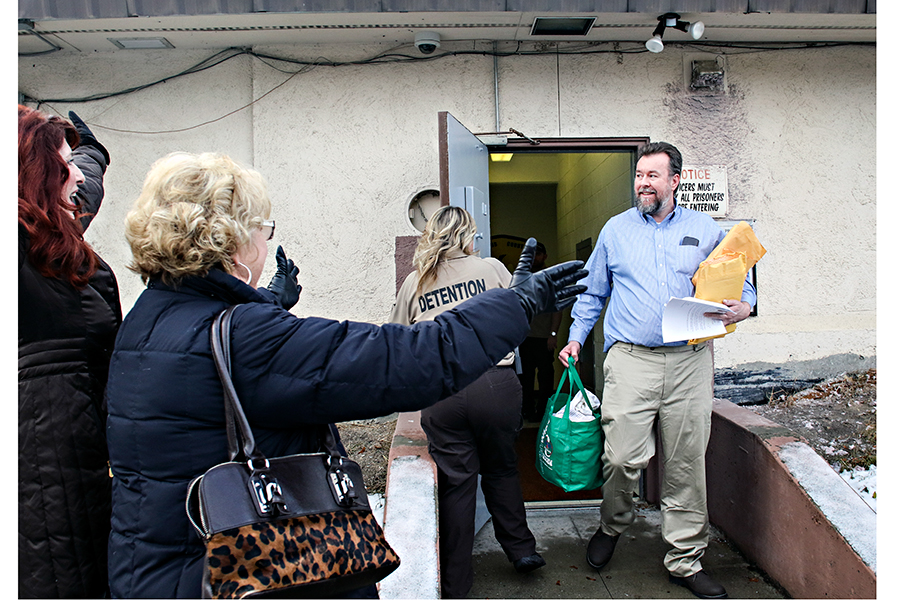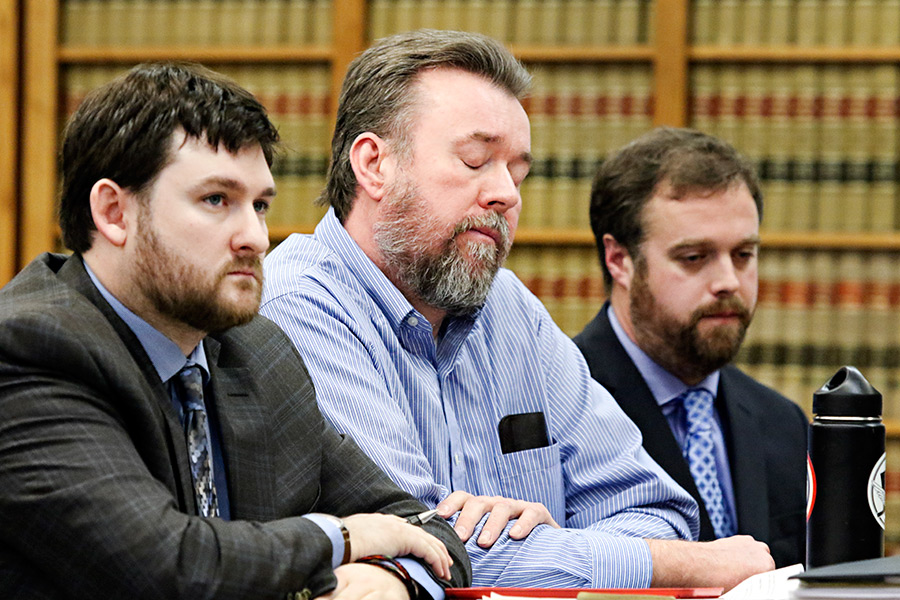Trout Creek Murder Exoneree Reaches $5 million Settlement in Wrongful Conviction Lawsuit
Richard Raugust served more than 18 years in prison for the murder of his best friend before a judge overturned his conviction under the weight of new evidence
By Tristan Scott
Richard Raugust, who served 18 years in the Montana State Prison before he was exonerated for a murder he didn’t commit, has reached a $5 million settlement with Sanders County in a federal civil rights lawsuit he filed seeking damages for the misconduct that contributed to his wrongful conviction.
The settlement marks the culmination of a 13-year legal odyssey as Raugust remained determined to clear his name in the 1997 murder of his best friend, Joseph Tash, at a campground in Trout Creek, a determination that finally paid off in November 2015 following a decision by Sanders County District Judge James Wheelis, who ruled that evidence withheld in the case constituted a violation of due process, supported Raugust’s alibi and warranted a new trial.
Following his release from prison, Raugust, now 56, lived in an apartment in Missoula awaiting the resolution of his case while the state appealed the district judge’s ruling to the Montana Supreme Court. The state eventually dropped its appeal, and the Sanders County Attorney’s Office dismissed the charge.
In doing so, Raugust became the first exoneree in a deliberate homicide case in Montana, and his settlement is the second-largest amount in a wrongful incarceration case; it is second only to those of Fred Lawrence and Paul Jenkins, who each received $6 million settlements after they were exonerated for a 1994 kidnapping and homicide in Montana City, a crime for which they each spent more than 23 years in prison before they were freed in 2018.
Even as the exoneration vindicated Raugust, who slowly mounted a case for his innocence from a prison cell in Deer Lodge before the Montana Innocence Project appealed his case in 2012, the journey to freedom has taken a toll on him.
“It’s tough, you know, trying to get back on your feet after so long,” Raugust told the Beacon in a 2019 interview. “Prison ages you pretty quickly and I’m in a lot of physical pain without any assistance.”

To gain some assistance, Raugust filed a claim with the state of Montana in 2019 seeking nearly $97 million in compensation for the loss of his liberty, including damages surrounding what the Montana Innocence Project revealed to be a shoddy criminal investigation and a case riven with prosecutorial misconduct and flawed legal proceedings.
According to Raugust’s demand letter, which he submitted to the state Department of Administration’s Risk Management and Tort Defense Division, the state committed the “grossest miscarriage of justice our society can offer.”
Although the claim was denied, the letter was a necessary procedural step for an exoneree who intends to file a civil lawsuit against the state, a step that cleared the path for Raugust’s legal team, led by Hillary Carls, of the Bozeman-based Blackford Carls PC, to file a civil rights lawsuit, also known as a 1983 claim, against Sanders County and one of its former sheriff’s deputies, Wayne Abbey.
At Raugust’s 1997 trial, Abbey provided a critical piece of testimony that supported the prosecution’s case against Raugust; however, in a 2013 interview with attorneys from the Montana Innocence Project, Abbey disclosed new information that supported Raugust’s alibi defense.
“The crux of Raugust’s claim against Abbey and Sanders County is that Abbey failed to disclose something he observed on the night of the murder that would have substantiated Raugust’s alibi defense at trial,” U.S. District Judge Donald W. Molloy wrote in an order denying Abbey’s motion for summary judgment in the case.

Indeed, the successful prosecution that put Raugust behind bars hinged almost entirely on the eyewitness testimony of Rory Ross, the man who Raugust’s legal team from the Montana Innocence Project asserts was the true killer. The new evidence withheld by Abbey challenged Ross’s key testimony that he saw Raugust kill Tash and theorizes that Ross collaborated with another man to cover up the murder and pin it on Raugust.
During the late evening hours of July 23, 1997, and into the early morning hours of July 24, 1997, Ross, Tash and Raugust spent the evening drinking at the Naughty Pine Saloon in Trout Creek. While conducting a routine bar check, Abbey encountered the men as they left at about 2:15 a.m. The deputy continued to watch the men through a window as they departed and observed their vehicle — a white AMC Eagle belonging to Ross — drive from the Saloon parking lot across the street to the Miller’s Market parking lot to briefly meet up with Randy Fischer. After Ross’s vehicle left Miller’s Market — and central to the dispute underlying Raugust’s claim — Abbey saw it stop briefly while proceeding down Highway 200, illuminating the brake and dome lights. Abbey observed that Ross’s vehicle was stopped long enough for someone to exit the vehicle, but he did not witness anyone do so.

Attorneys for Raugust have argued — and multiple judges have agreed — it’s a key piece of evidence supporting Raugust’s alibi that he hopped out of Ross’s car after having second thoughts about a late-night party back at the Swamp Creek campground where he was living; knowing he had an early work commitment, Raugust says he opted to stay closer to town, and crashed at nearby Rick Scarborough’s, where he’d stayed occasionally in recent weeks.
Abbey maintains that he never learned of Raugust’s alibi at trial, and so never thought to disclose his observation.
“If Abbey knew of Raugust’s alibi, he would have understood the importance of his observation of Ross’s vehicle,” Molloy wrote. “And, it would have been clear to any reasonable officer in his situation that nondisclosure of this evidence was unlawful.”
According to Carls, Raugust’s civil attorney, the case was just weeks away from going to a jury trial before the settlement was reached. She described the decision to agree to a settlement as “difficult.”
“In civil litigation, it’s one of the most difficult decisions we make: How do we monetize something like a wrongful incarceration, and how do we balance the positive and negative outcomes of seeking our day in court?” Carls said. “Ultimately, this was Richard’s decision, and he felt as though it was a good decision to help end this chapter in his life. I think this is a great opportunity for him to close a door on a very long fight for his freedom that began in July of 1997.”